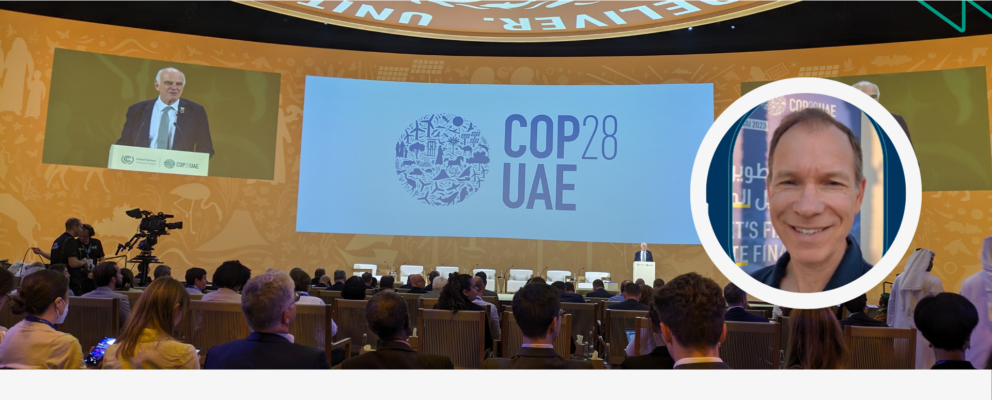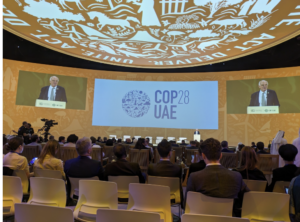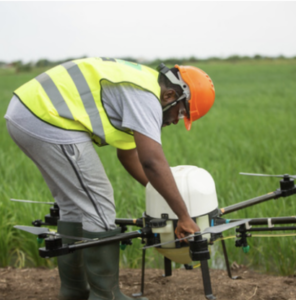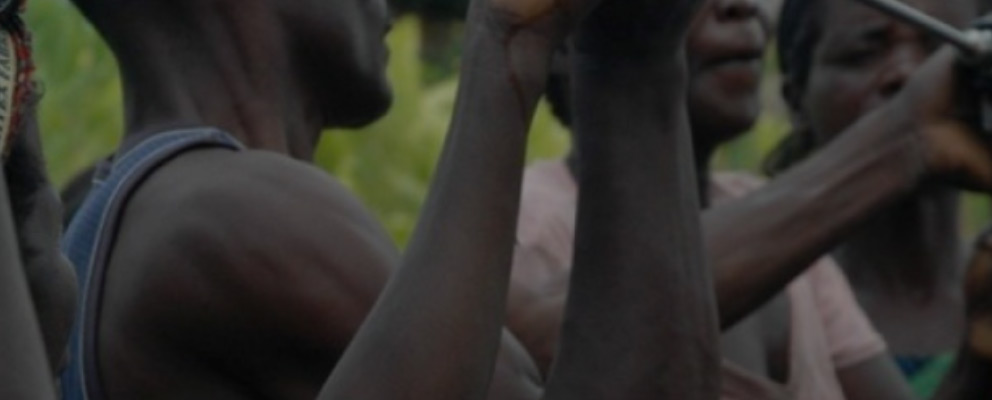
A “Look Forward” with EWB Canada CEO Brian Harrigan
Engineers without Borders Canada is proud to present the “CEO Looking Forward” series, which will share insights, thoughts and dive-deeps, from EWB Canada’s very own, CEO Brian Harrigan, about diverse topics and their connection to EWB’s current and future plans and programs.
In early December last year, I participated in COP28 UAE, a key session of the Conference of the Parties to the United Nations Framework Convention on Climate Change (UNFCCC) in Dubai, where world leaders, environmental experts, and various stakeholders convened to discuss and advance global efforts against climate change.

COP28 was particularly significant because it was built upon previous commitments like the Paris Agreement, and because it was the first conference where the final declaration included a reference to “transitioning away from fossil fuels,” which previously, for petro-states like the host UAE, was not a given.
After COP28, one of the key takeaways for me was the global commitment to transition towards renewable energy and improved energy efficiency. However, the adequacy of adaptation finance remains a significant concern, especially for vulnerable nations. There were pledges to various climate funds, yet these fall short of the needs for a clean energy transition and effective adaptation strategies. For example, the operationalization of the Loss and Damage Fund was a notable achievement, aiming to support countries most affected by climate change, but financial commitments are still limited, and Canada’s financial contribution was surprisingly meager.
Another striking observation for me at COP28, was the limited visibility of the term “engineering” amidst the focus on “technology and innovation”. This represents a significant opportunity for EWB to advocate in this space, reinforcing our role in bridging the gap between technology and practical engineering solutions. The conference also highlighted the importance of addressing emissions from sources like forest fires, which are often overlooked in national tallies. For Canada, this is particularly impactful, with emissions from forest fires being substantially higher than other sources in certain years.
Building on these insights, Engineers without Borders Canada’s ambitious new strategy, plan for 2024-2029, is a direct response to these global needs and challenges. The new strategy is guided by a holistic approach that spans four critical areas: Clean Technologies, Agriculture & Food Systems, Health, and STEM Education, Skills & Jobs. Our mission is clear: to engineer an equitable and sustainable future that tackles urgent global challenges through innovation, advocacy, and education and training.
A Synergy of Global Ingenuity and Canadian Innovation: We’re at the forefront of sustainable development, not in isolation, but through a dynamic fusion of Canadian technological advancements and the rich tapestry of global ingenuity. The Canadian collaborative spirit is bringing transformative changes across continents.

Here are some examples of some future potential EWB developments with leading Canadian expertise:
- Agroforestry Infused with Global Wisdom → Leveraging Canada’s expertise in integrated land management, EWB could meld these insights with successes from Central America. This rich exchange would not only adapt Canada’s sustainable practices globally but also reciprocally enrich our forestry strategies with tropical biodiversity lessons.
- GIS and Land Use Planning Across Continents → At the forefront of developing advanced GIS solutions, Vancouver’s expertise is influencing smarter agricultural planning in Tanzania. This mutual exchange benefits both Canadian and Tanzania landscapes, revolutionizing environmental sustainability and agricultural productivity through shared learnings and technological applications.
- Water Management with a Shared Purpose → Inspired by Alberta’s micro irrigation systems known for their efficiency, we may look to introduce these innovations to Kenya’s arid regions. This initiative would not only export Canadian water-saving technologies but also import community-based water management strategies, enhancing conversation efforts across borders.
And so much more!
Engineers without Borders Canada plans tackle these projects through our programs such as the Canada-Africa Innovation Fellowship (CAIF) coming next month, which embodies our multidisciplinary approach to tackling sustainable development challenges. Mbarara and Lyantonde, in Southeast Uganda, will serve as the epicenters and innovation hubs for these initiatives, leveraging the local expertise of the Mbarara University of Science and Technology and incorporating Canadian technological innovations to drive sustainable growth.
So, join us in shaping sustainable futures. Your engagement and support are vital to advancing these initiatives. By joining forces with EWB Canada, you’re contributing to a global movement dedicated to creating systemic change through innovative solutions, community-driven collaboration, and advocacy.
Let’s continue to build this future together, leveraging our collective expertise, passion, and vision for a better world.
Warm Regards,

Brian Harrigan
CEO, Engineers Without Borders Canada
Follow the CEO Looking Ahead Series and other updates on LinkedIn:
